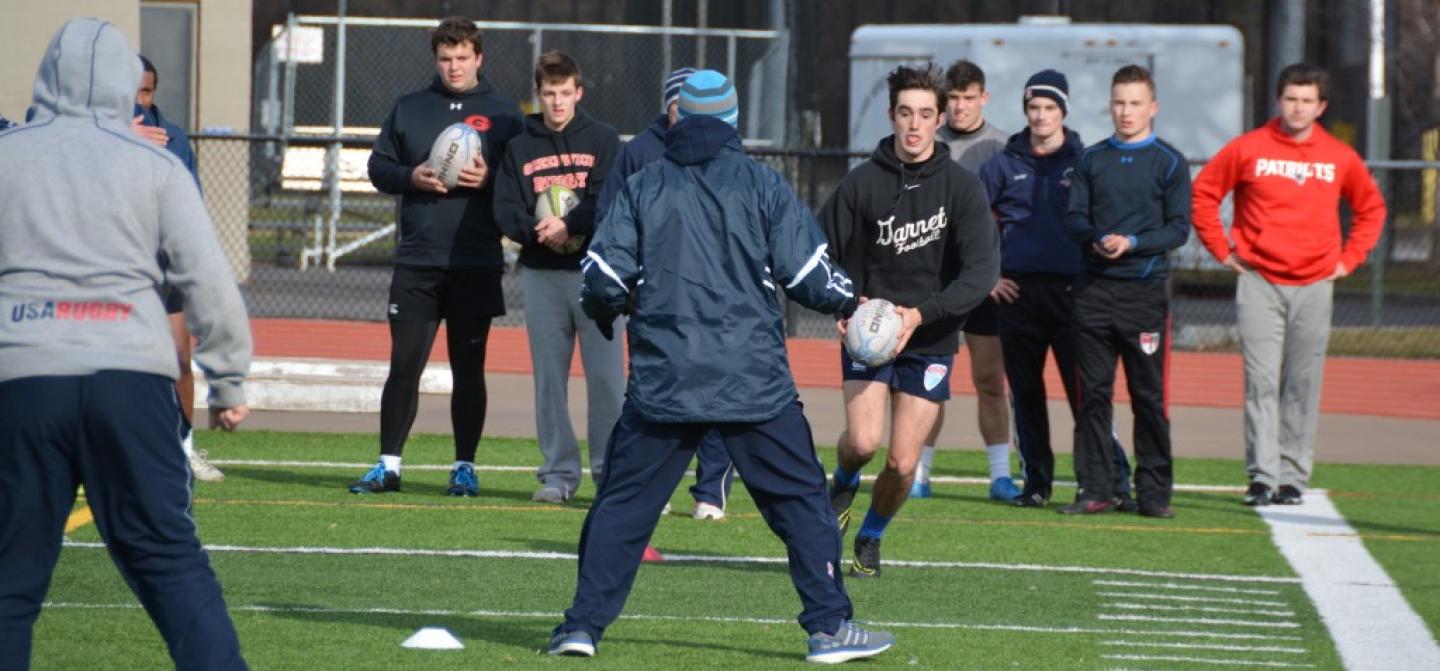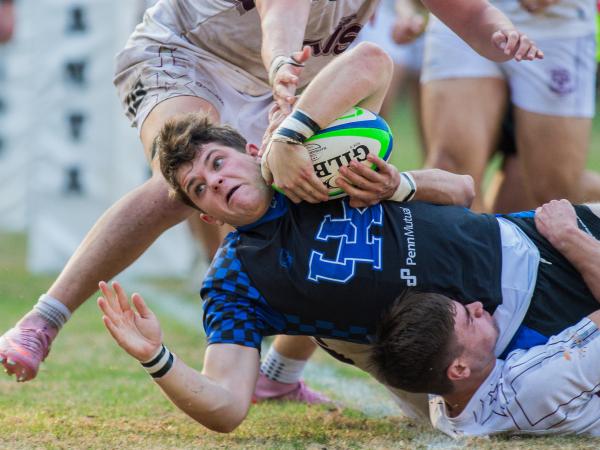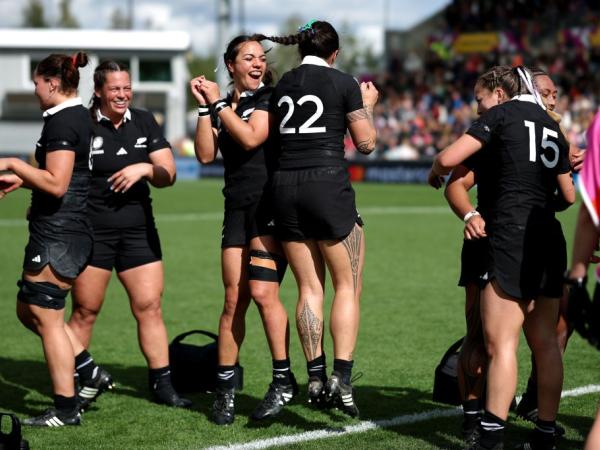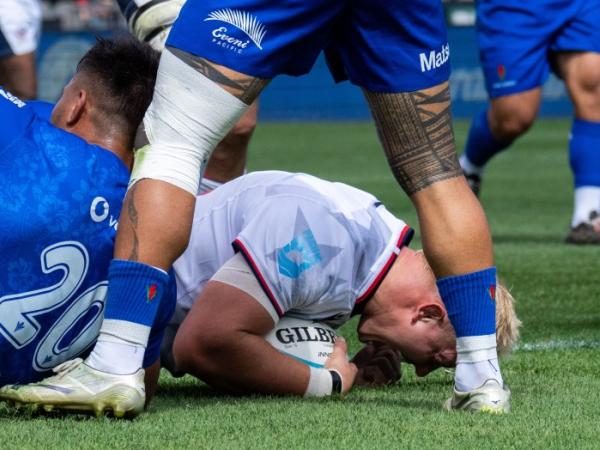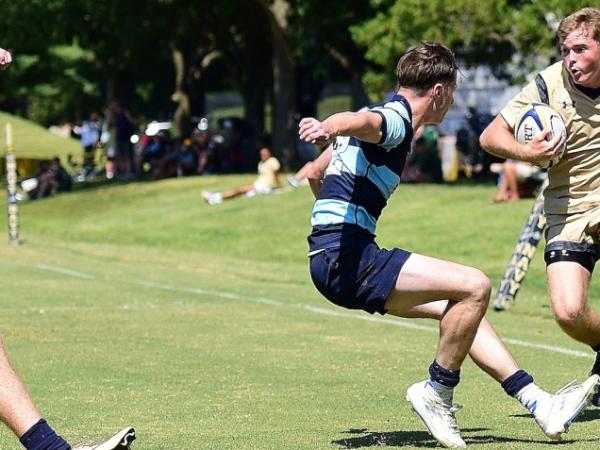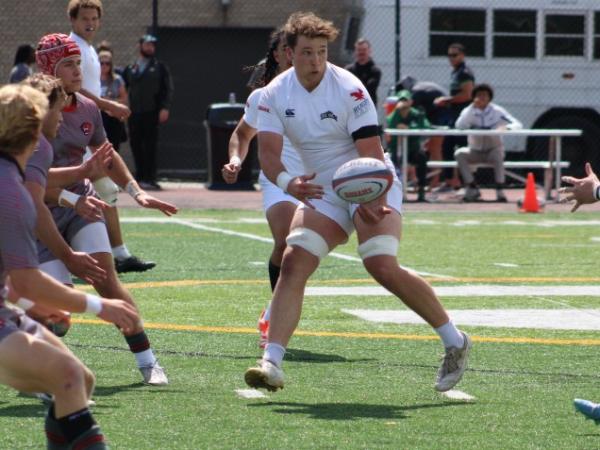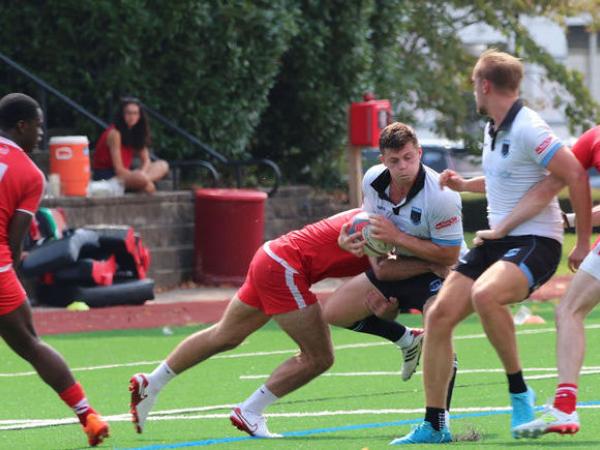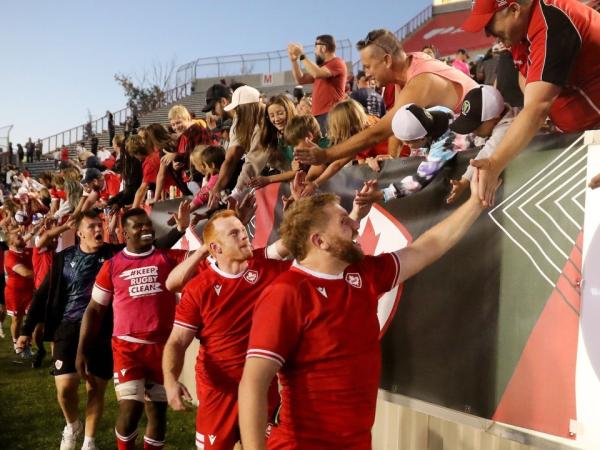It’s been a tough year for USA Rugby’s Training & Education programs, given that USA Rugby’s financial problems coupled with the inability to gather because of the COVID pandemic almost shut it all down.
But those looking to develop coaches and referees haven’t been idle; instead they have tried to adapt to new situations and provide a way for those interested in continuing rugby education to get what they need.
Goff Rugby Report sat down with Mike Hodgins, head of USA Rugby’s Training & Education Northeast Region, and Shannon Bustillos, who heads USAR’s Training & Education Midwest Region, to talk about how things have been, and how they will be.
“Last March all rugby came to a standstill,” said Hodgins. “All training and education activities were suspended. From March to about August, nothing happened.”
However, as USA Rugby emerged out of bankruptcy, rugby educators started to discuss how Training and Education will work when it starts up again.
“We really didn’t know [what it would look like,” said Bustillos.
A Shift
With new rugby communities organizing their own governance groups (USA Youth & High School, the Collegiate Council, the Club Council), the Education group had to find out what each wanted and needed.
“A big part of this discussion was that they wanted a less centralized approach,” said Hodgins. “If they could regionalize this it could be a lot closer to the grass roots.”
At the same time, while services were localized, COVID made gathering much more difficult. Technology stepped in to help that, but it also forced changes within the education system.
“There’s been pros and cons with it, but basically we all had to figure out we’re going to do this online,” said Bustillos. “How are we going to know that our participants are competent?”
“The practical aspect of these courses … are such an important part of the learning process,” said Hodgins, who added that World Rugby has its own expectations on training for coaches, strength & conditioning, and referees. “There are certain [tasks] that can’t be done online and won’t be. So we kind of picked and chose what course offerings could be easily transitioned to an online or virtual delivery and we concentrated on those.”
COVID, Zoom, and Virtual Training
They also developed some COVID-safe in-person training as well.
Groups going through the World Rugby Level 2 (USA Rugby Level 300) course has moved to a series of online meetings. And the competencies that need to be met could also be confirmed with uploaded video or have educators observe the students operating in a real-world situation.
There has been trouble hosting education sessions because the COVID protocols involved have scared a few off. Bustillos says it is a bit more involved, but hosts have to be aware that there are hosting expectations.
“It depends on the state, too, so we have to stay on top of what state’s been doing what,” he said.
Courses are starting up again around the country, but in-person delivery might not be practical. The question remains whether virtual might be here to stay in certain situations.
“Once we get back to in-person delivery, we’ll be able to do in-person and virtual,” said Hodgins, who added that in low-density areas, such as some of the western states, virtual might remain the preferred format. “If you’re in Montana, Idaho Dakotas, Colorado … in-person delivery just might not be practical. So in some areas these virtual courses are going to be a huge help to get people to come through the door. And there’s other place my suspicion is that when we really get back to a full normalized in-person environment we’ll probably a lot less of the virtual.”
“Something we have learned as educators that, hey, this is a new tool we can use,” added Bustillos.
New Features
New things are coming down the pike in Training & Education. There’s a new introductory coaching course for people who don’t know a lot about rugby but want to help out with a team. They have a new introduction to refereeing offering, as well. There’s more for Strength & Conditioning, medical, and administrative.
“With these intro courses … the idea when we were first brainstorming back in November … was kind of get something to hook some of these people in. I have had a lot of people, too, take them as a refresher course,” said Bustillos.
The introductory courses do not certify you as a ref or a coach, but they do allow you to get the basics and understand what’s going on.
With all of these changes and developments, it’s important to remember that the USA Rugby Training & Education programs are supported by World Rugby money and participation fees. They are not covered by USA Rugby dues, and those who take the courses have to pay.
“These are professional certifications; all of our educators are trained and licenses and we do have costs. There is a cost involved and that’s not going to go away soon,” said Hodgins.
To learn more about USA Rugby’s Training & Education and the changes and evolution of what’s being offered, go here>>
See the full interview with Hodgins and Bustillos here:





